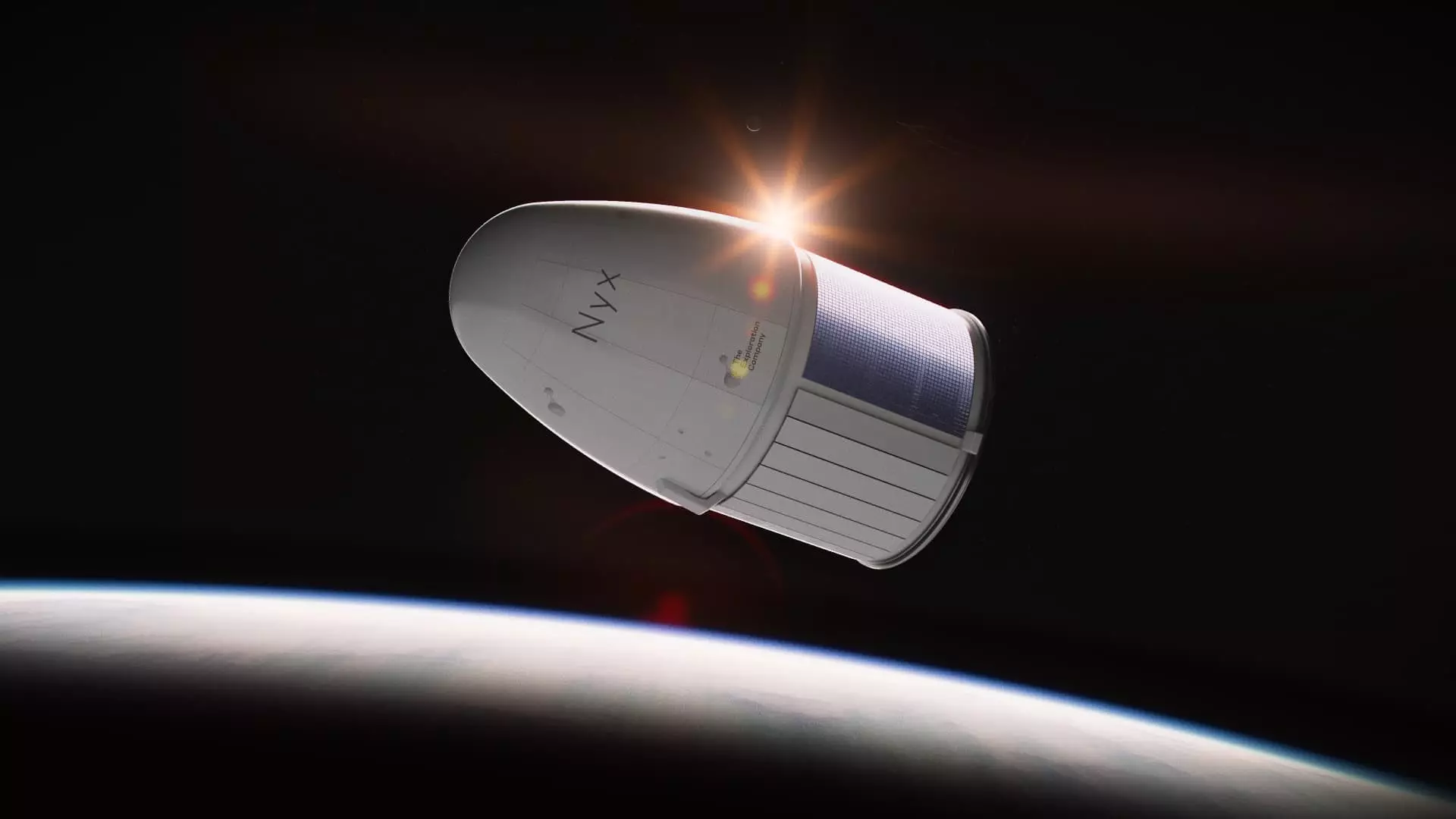The recent announcement by The Exploration Company (TEC) regarding their successful fundraising of $160 million has significant implications for the future of space exploration and the commercialization of space. This initiative, guided by visionaries in the venture capital sphere and bolstered by government-supported funds, underscores the growing momentum behind innovative space travel solutions. TEC’s flagship product, the Nyx capsule, is poised to play a critical role in transporting astronauts and cargo to various space stations, marking a pivotal shift in how we approach human and material transport beyond our planet.
Venture capital firms Balderton Capital and Plural took the lead in this funding round, reflecting an increasing interest in the commercial potential of space travel. When coupled with contributions from state-backed investment vehicles like French Tech Souveraineté and Germany’s DeepTech & Climate Fonds, it becomes evident that public-private partnerships are integral to pushing the boundaries of space exploration. This financing will support the next stages of TEC’s development, which includes refining their reusable capsule that’s designed for multiple missions, a feature that could significantly reduce costs and enhance sustainability in space operations.
Nyx stands apart from its competitors due to its reusability. Traditional space capsules are often single-use, leading to immense costs and sustainability issues. Nyx’s ability to re-enter the Earth’s atmosphere post-mission, preparing for additional flights, is a strategic advantage that positions TEC as a formidable contender in the space transport arena. Hélène Huby, the founder, recognizes that there is a growing demand for space travel among nations aspiring to establish their presence beyond Earth. This necessity is evident as more countries plan missions to the moon and beyond, ultimately seeking commercially viable access to space.
As Huby highlighted in her discussion with CNBC, the market for space travel is experiencing robust growth, estimated at more than 10% annually. The surge in interest stems from numerous nations striving to assert their exploration capabilities, further compounded by the private sector’s push toward commercialization. Major competitors include SpaceX and established players from Russia and China, but Huby’s drive to cultivate a European alternative highlights a crucial opportunity for diversification. While SpaceX has set a formidable precedent with its Dragon capsule, the potential for TEC to carve its niche equipped with its reusable technology exemplifies the essential rivalry that can foster innovation in this burgeoning field.
TEC’s proactive approach extends beyond developing its capsule; the company is taking bold steps in establishing strategic partnerships. With $800 million in contracts signed, including collaborations with Starlab and Axiom Space, TEC prepares to cement its position as a reliable provider of transport services for accessing space. These partnerships transcend mere commercial agreements; they reflect a mutual recognition of the need for expanded infrastructure and capabilities in the face of increasing demands for space exploration.
The race for space supremacy is not limited to established powers like the United States, China, and Russia. Emerging nations like India are investing heavily in their space programs, promoting global interest and competition. One of the most ambitious projects currently underway is NASA’s Gateway, the first space station intended to orbit the moon. This initiative signifies not just the need for transport but also the demand for sustainable solutions to manage increased nascent traffic in space. As Huby noted, an uptick in human involvement in space necessitates a parallel increase in cargo transport, underscoring the importance of capacity and capability in orbital logistics.
As The Exploration Company embarks on its journey, the success of the Nyx capsule could define a new chapter in space travel—one that emphasizes sustainability, reusability, and global cooperation. The mature mobility in space demands innovative solutions, and with its ambitious goals and partnerships, TEC is poised to be a significant player in shaping the future of how humanity interacts with the cosmos. By focusing on innovative transport technologies that can handle an increasing volume of missions, TEC may very well offer the necessary infrastructure to support the burgeoning demand for both human and cargo transport into space, heralding a new era of exploration and commercial opportunity.

